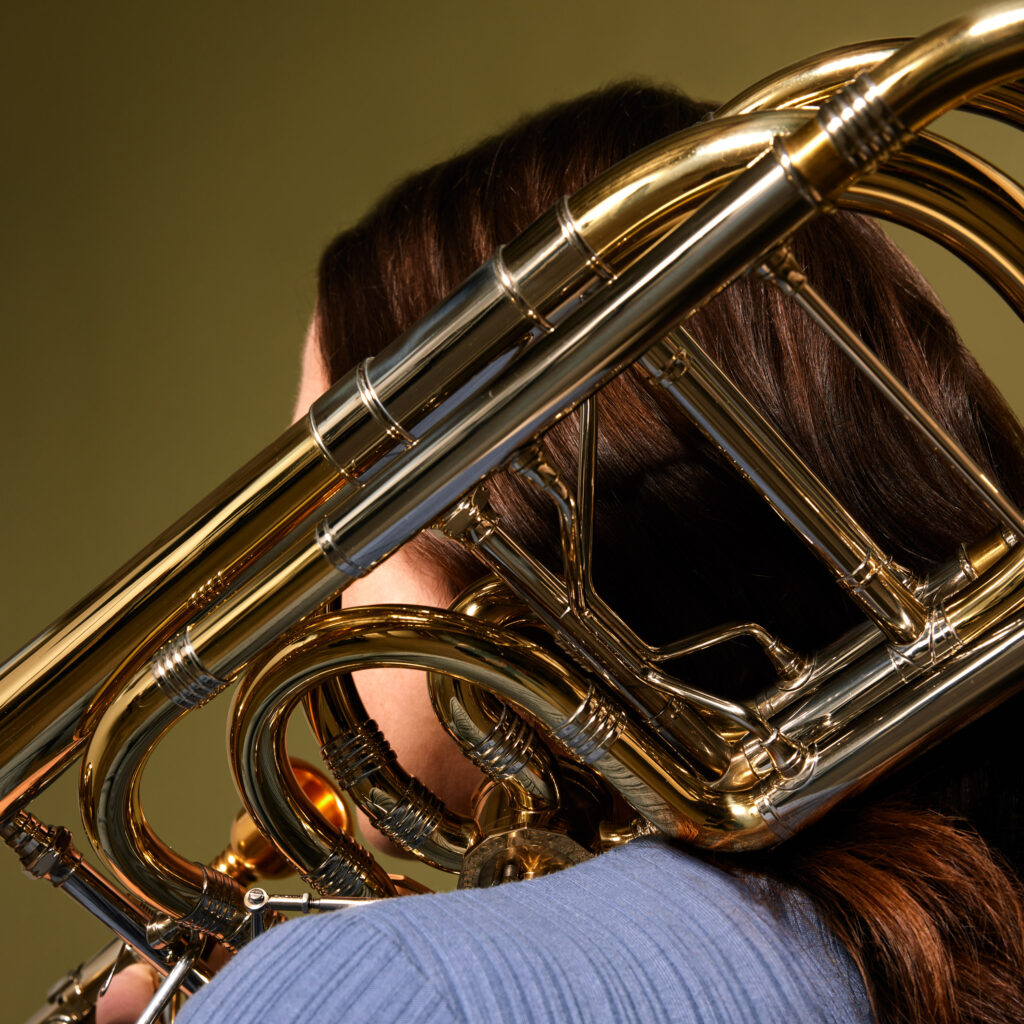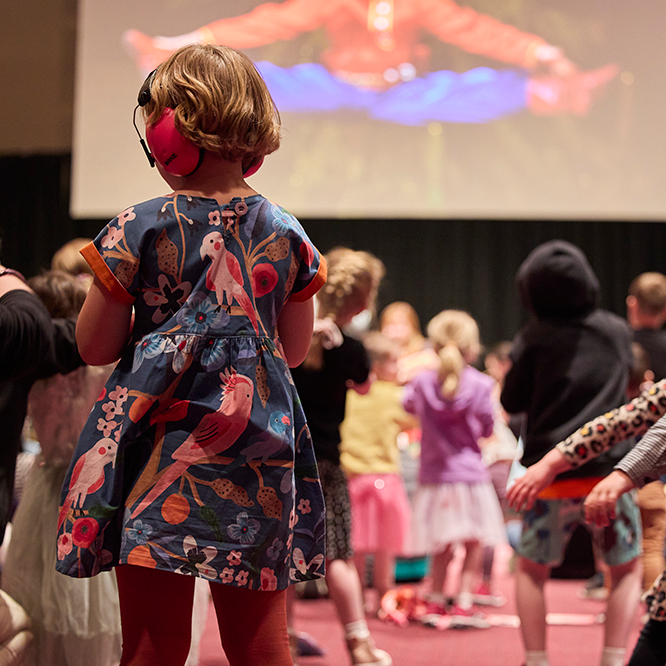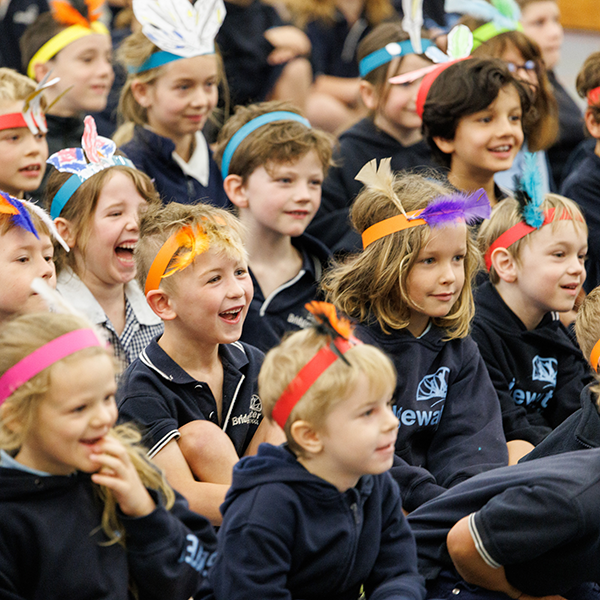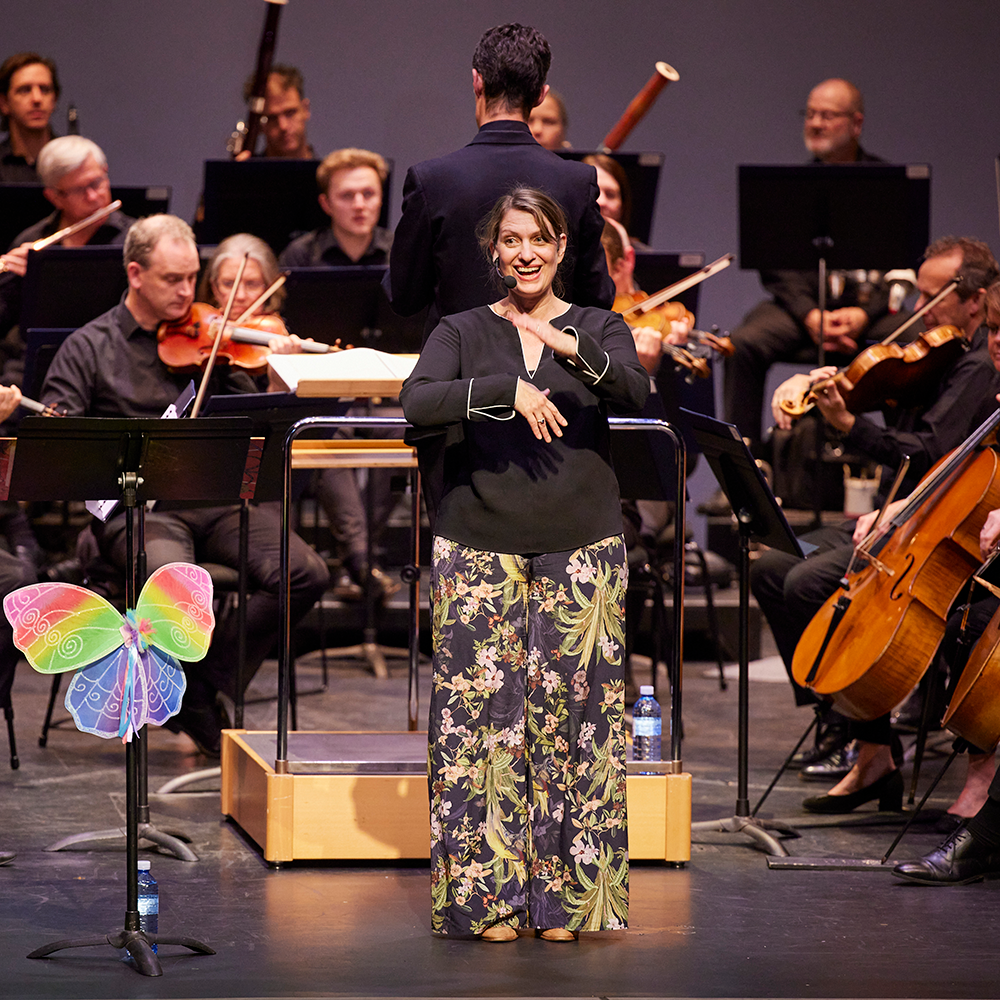Q&A Natsuko on Brahms Violin Concerto
- Musician Spotlight
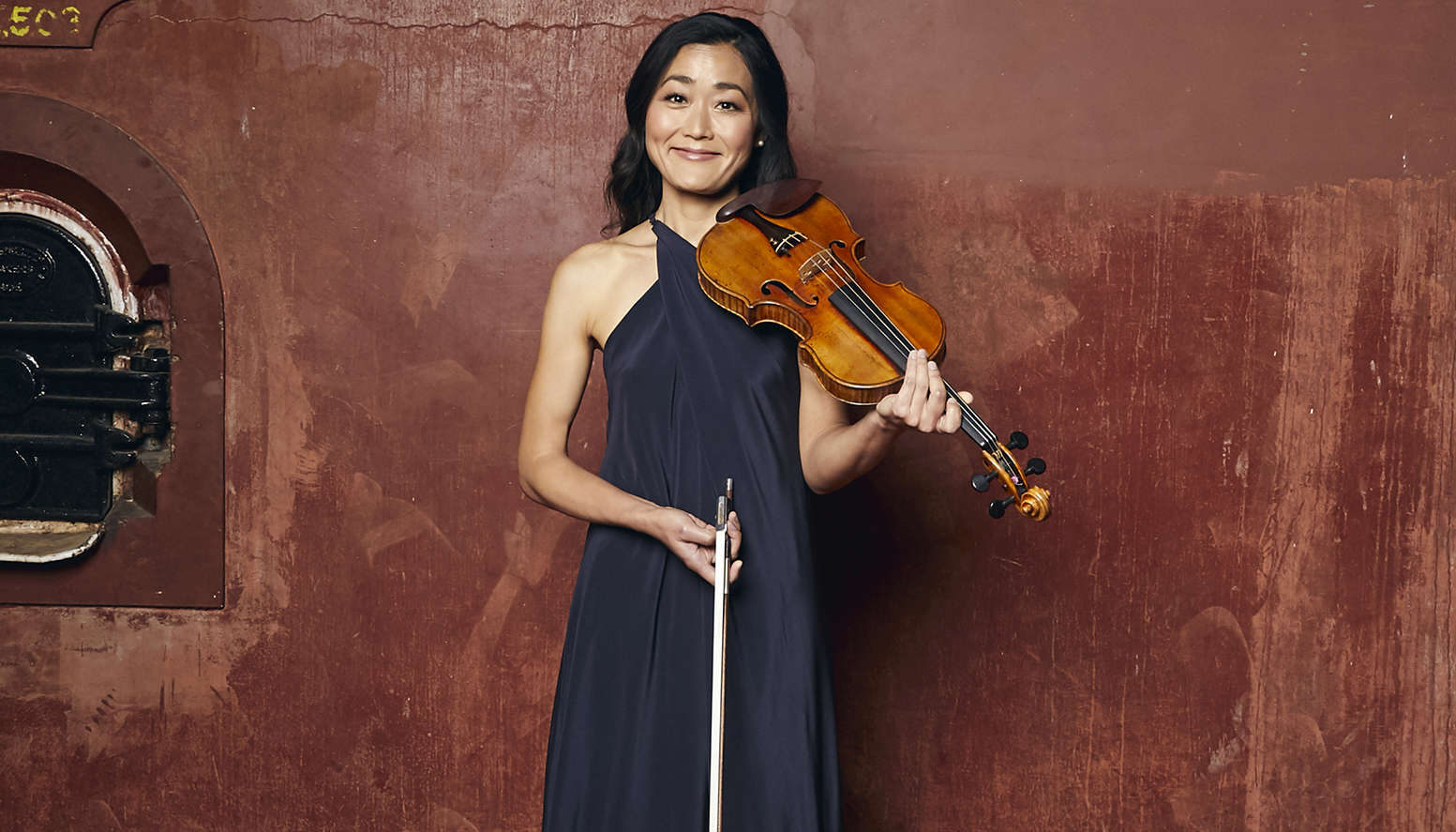
ASO Concertmaster Natsuko Yoshimoto was to perform the Brahms violin concerto at Master Series 2, but in light of the current circumstance surrounding COVID-19, this concert was cancelled. The Brahms is a work that has been variously described as a concerto against violin, and ‘for violin against orchestra – and the violin wins!’ Below, Natsuko explains how the violin strives for beauty, finds it in abundance during the Adagio, and celebrates with a joyful Hungarian rondo.
Brahms Violin concerto is a work that has been variously described as a concerto against violin, and ‘for violin against orchestra’ and the violin wins! Do you agree?
The concerto starts with a big orchestral tutti and the solo violin doesn’t play for a while. The same thing happens with the beginning of the second movement where it starts again with the orchestra and features the oboe with the beautiful melody. When the concerto got premiered, some virtuoso violinists at the time objected to the fact that it didn’t show off or feature the violin straight away, that it sounded like a symphony rather than a violin concerto so perhaps that’s how that comment was said perhaps. Of course I think the symphonic nature of this concerto is what makes this piece unique and special, the role of the solo violin is ever evolving and changing from being inside the orchestral texture, to accompanying the orchestra and to standing out from the orchestra.
Have you played Brahms before? And if so how will you approach it differently?
Yes I have played it number of times in the past. I would like to think that every time you come back to a piece you approach it differently, with freshness and you always find something new or something that you hadn’t noticed or thought of before. Learning from the orchestral score is critical as how you play your own part is very dependent on what else is going on in the orchestral part, what I do is part of the bigger picture. Also Mark Wigglesworth will bring his insight and his understanding of the concerto so I’m looking forward to the process of putting all of those elements together.
What do you love about the piece?
Just like Beethoven, Brahms only wrote 1 violin concerto and both in the same key of D major and both start with a big orchestral tutti. Brahms was no doubt inspired and influenced by Beethoven’s violin concerto. I find it interesting that both concertos, somehow the virtuosity and the technique required to play comes from deeper musical need so it’s not a display or showmanship of what a violinist can do. What’s amazing about the concerto is that perhaps with the exception of the last movement, the solo violin part really is integrated into the orchestral texture therefore creating more “symphonic” feel, sometimes playing an accompanying figure to the orchestra and I love that interplay and the sense of chamber music. The piece requires much stamina because of it’s length but also in its incredible range of emotions and depth of expressiveness in first and second movement and yet somehow still have to have the energy for some bravura for the last movement- it really has everything!
The Violin Concerto of Brahms is both a close collaboration of two great friends Brahms and violinist Joseph Joachim, and the testament to their friendship. How do you think this may be heard in the concerto?
Brahms asked Joachim for his input on the final details of the solo part as Brahms was not a violinist. This went far deeper than just “final details” as Brahms’ manuscript shows extensive revisions by Brahms, sometimes even lightning the orchestral texture to bring out the solo part and more elaborate revisions by Joachim on the solo part marked in red. After performing the premiere together, they still kept on revising on the concerto. Obviously Brahms had tremendous respect for Joachim who was not only an incredible violinist but an accomplished composer as well meant that Brahms could entrust him to make the necessary changes and improvements. Knowing the concerto, I imagine he would have played the first movement with an incredible sense of grandeur and architecture, second movement with real beauty and the last movement with tremendous flair, style and elan!
It’s a work of epic scale for the violin, almost a battle. How do you prepare for it?
With any large scale piece I always look at the big picture so I can work out where I’m aiming for in a big section for example. If the section has lots of “peaks”, it’s easy to get stuck on the first one and you lose energy or the flow or the sense of shape. You need to pace yourself just like if you’re climbing a mountain or if you’re standing in front of a large scale painting, you need to stand back to appreciate the whole picture.
What have you loved about playing with the orchestra?
Having such an inspiring environment all the time to work in! Of course we have many conductors and soloists who are incredibly inspiring but I’m also always amazed by the talent and skills that my colleagues in the orchestra have. The ASO is full of special people and I have tremendous respect for them and I’m always learning from them!
As you enter your final year as Concertmaster, how will this affect your performances?
As a performer I treat every concert as if I’m playing the piece for the first and the last time but obviously my final year will feel quite emotional with every concert as it will be the last time that I play these works with this wonderful orchestra.
What are the 3 concerts you are most looking forward to perform next year and why?
The complete Beethoven Symphonies with Mark Wigglesworth, it’s not everyday that you get to experience such an epic journey like this. I’m also looking forward to celebrating the wonderful history of violin concerti with great variety of amazing soloists such as James Ehnes, Pinchas Zukerman and most recently with Grace Clifford.
What are you plans for 2021?
I’m looking forward to be able to have the space to take on and do different projects in chamber music and solo playing and focus on education and teaching but most importantly being able to spend more time with my family. It has been an intense and rewarding 11 years with the ASO and I have enjoyed every minute of it!
What will you miss about the ASO?
Music making and the friendship with my colleagues and friends mostly. I’ll also miss Adelaide, the ASO subscribers and Adelaide audience who have supported myself and the orchestra over the years.

